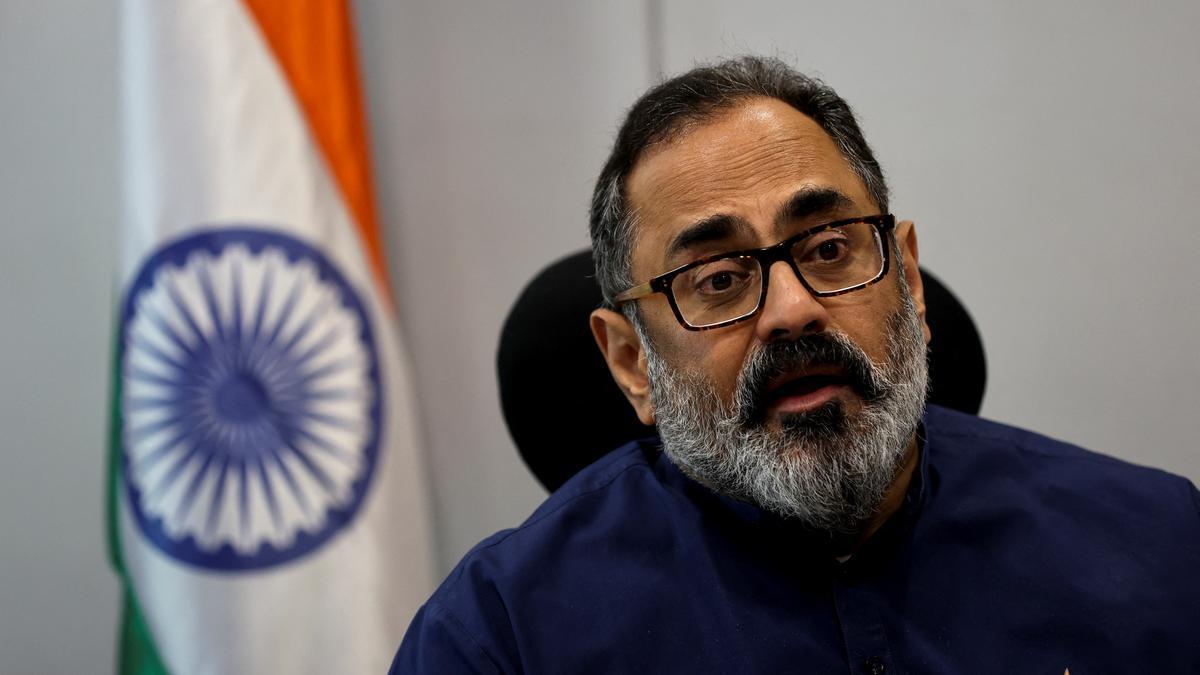
More rural households now have access to tap water supply under Jal Jeevan Mission: Union Minister
The Hindu
JJM has enabled 97.46 lakh rural households in Tamil Nadu to access tap water, Union Minister Rajeev Chandrasekhar said.
Jal Jeevan Mission (JJM) has made significant progress in enhancing access to tap water to rural households across the country. In Tamil Nadu, nearly 97.46 lakh rural households have tap water supply after the launch of JJM, Union Minister of State for Jal Shakthi Rajeev Chandrasekhar said on Monday.
Responding to unstarred questions raised by Rajya Sabha member Kanimozhi NVN Somu, Mr. Chandrasekhar said nearly 77.77% of residents in rural areas had tap water connections. Of the 19.24 crore rural households in the country, nearly 13.81 crore households, which is 71.77% of total number of households, now had tap water supply under JJM.
The Central government was committed to providing tap water supply in adequate quantity to rural households in the country and supported the States with technical and financial assistance.
He said the per capita requirement of clean water ranged from 30-50 lpcd for drinking and other purposes as per the WHO. Under JJM, the minimum service delivery had been fixed as 55 lpcd and States may increase the amount of water supply according to availability of water sources, he said.
Ms. Kanimozhi raised questions on the per capita availability of clean drinking water and water for irrigation in States, steps taken by government to curb the menace of shortfall of clean drinking water and groundwater depletion and the list of projects funded by the Centre for the State governments to increase the per capita availability of clean drinking water.
Mr. Chandrasekhar also highlighted the assessment of dynamic groundwater resources done by Central Groundwater Board along with the State governments. In Tamil Nadu, nearly 14.42 billion cubic metre of groundwater was being extracted for various purposes, including domestic and irrigation, every year. Nearly 73.91% of groundwater source was extracted every year.
Water was a State subject and the Central government’s role was limited to catalytic and provided technical and financial assistance, he added.













